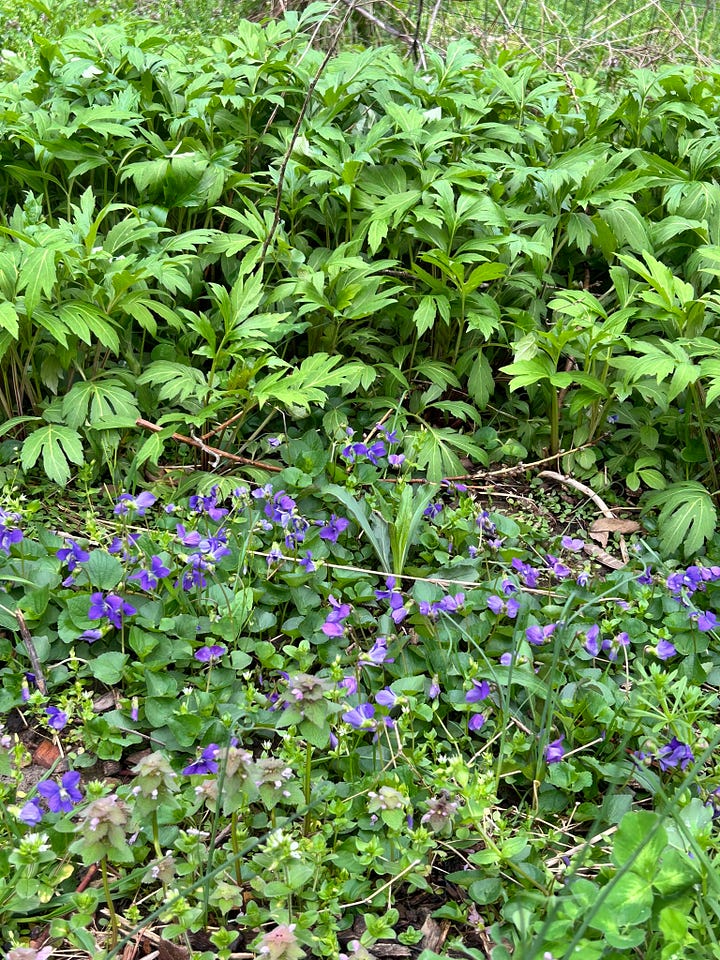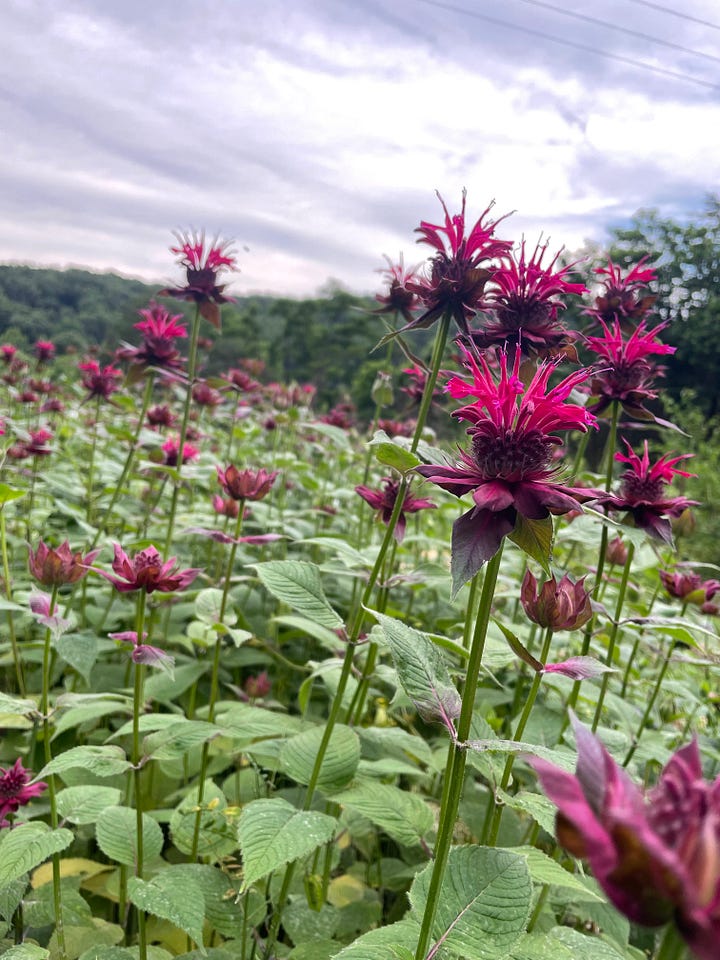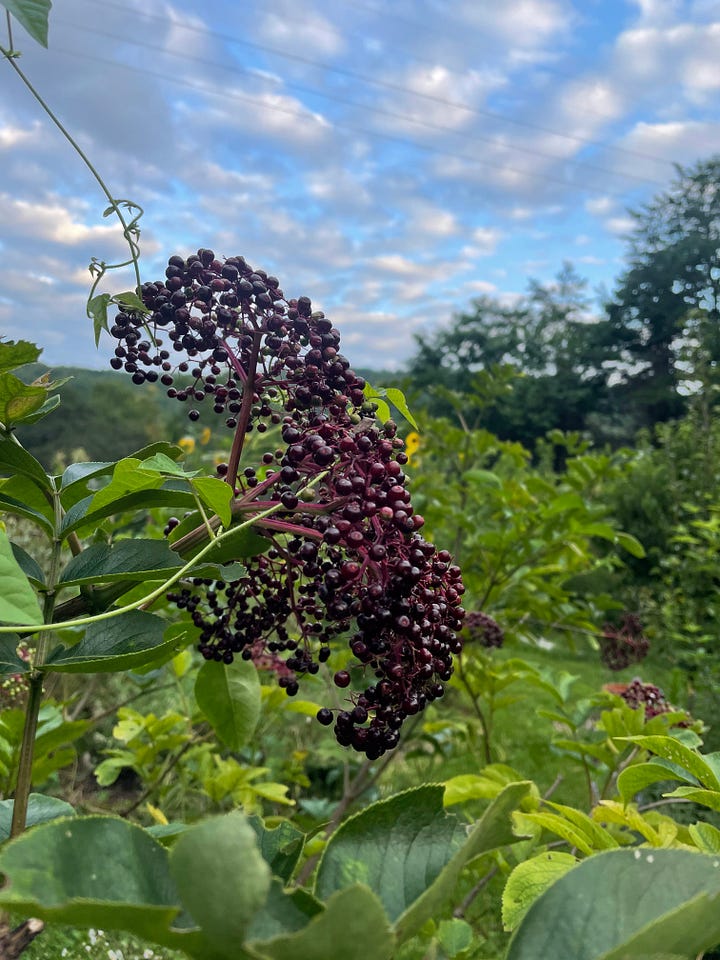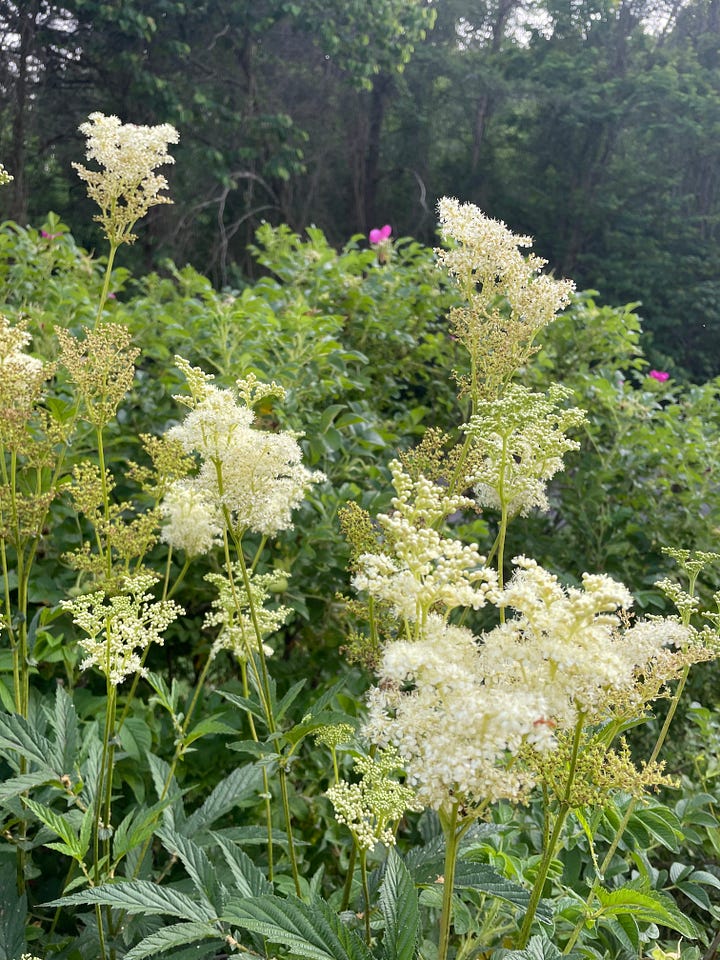Its bird migration season and that has got me thinking a lot about birds, plants, insects, and the importance of winged creatures for the existence of medicinal plants. As Robin Wall Kimmerer reminds us, “all flourishing is mutual.”
While winged insects are of course critical for pollination, I’m mostly here to talk about birds. I have been keeping bird records for the last 5 years. It started with the magical song of the wood thrush and the quirky chirping of the summer tanager, which are both distinct calls and easy for beginners to learn. We are especially blessed to have the wood thrushes here - they return to the same place year after year, within a mile radius or so. They have arrived here every year between April 13 - 21. I haven’t heard them yet (as I write this on April 17), but I expect to at any moment.
Fun fact: the wood thrush are incredibly important for herbal medicine (and the ginseng economy) because they help disperse ginseng seeds in the fall. Meanwhile, the summer tanagers are mostly insect eaters, although they do chow down on berries in late summer. Both of these species rely on intact, mature forests in both the tropics and in the eastern US, so they are declining in number.
here’s a video from a few years ago of the summer tanager:
The species declines would suggest that we need more environmental protections rather than less, but more executive orders have just been released that are designed to dismantle some of our most important environmental protections - the Endangered Species Act and the Migratory Bird Treaty Act. In addition, a notice was just published to rescind the Public Lands Rule. It remains to be seen how these removals will impact our public lands and the birds and other species that rely upon them. I alternate between hope and despair.
Hopeful Lauren thinks: There are ethical land managers and loggers that truly care about forest health. They can continue to log responsibly without federal protections. We have been successful in the past at organizing locally to protect habitat and stop bad logging projects. Just because there aren’t federal protections doesn’t mean we can’t have local ones. It will be more important than ever for private landowners to be good stewards.
(I will leave the despair out of this thread).
In the meantime, we can turn off our outdoor lights at night (to support bird migration) and grow more plants that can nurture both the winged creatures and humans. Some of my top native plants that are easy to care for and provide lots of food and medicine for many creatures:
Elderberry (Sambucus canadensis) and Aronia berry (Aronia melanocarpa): immune support, super antioxidants
Cutleaf coneflower (Rudbeckia laciniata): delicious edible leaves
Bee balm (Monarda didyma, Monarda fistulosa): similar to oregano, makes a great tea
Mountain mint (Pycnanthemum incanum and other species): very strong minty flavor for tea
Meadowsweet (Filipendula ulmaria): gut healer, anti-inflammatory, smells amazing
Let me know if you would like to plant any of these! (I’m selling some).









Seeing that little guy nipping off a bit of the suet and then cheeping about it lifted my heart. I haven't heard the woodthrush either, but that is my favorite part of sitting quietly in the summer time -- hearing that fluted beauty sing. xx